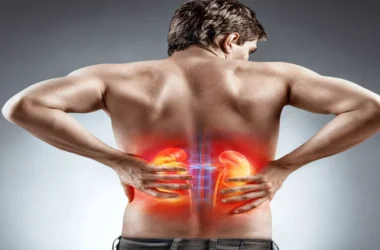[ez-toc]
Gastroesophageal reflux disease (GERD) is a common condition that affects millions of people worldwide. If you’ve been experiencing stomach pain or discomfort, it’s essential to understand GERD, its causes, symptoms, and available treatments.
In this comprehensive guide, we’ll delve into the depths of GERD and stomach pain to provide you with valuable insights and answers to your questions.
What is GERD (Gastroesophageal reflux disease)?
GERD, or Gastroesophageal Reflux Disease, is a chronic digestive disorder that occurs when stomach acid frequently flows back into the esophagus.
This can lead to irritation, inflammation, and discomfort, often resulting in stomach pain. Understanding the causes of stomach pain is crucial for effective management and treatment.
Common Causes of stomach pain
Several factors contribute to the development of GERD. The most common causes include:
- Hiatal Hernia: A hiatal hernia occurs when a portion of the stomach protrudes through the diaphragm into the chest cavity, increasing the likelihood of acid reflux.
- Weak Lower Esophageal Sphincter (LES): The LES is a ring of muscle that separates the esophagus from the stomach. When it weakens, stomach acid can flow back into the esophagus.
- Obesity: Excess body weight puts pressure on the abdomen, causing stomach contents to flow upward into the esophagus.
- Unhealthy Diet: Consuming fatty, spicy, or acidic foods can trigger stomach pain symptoms.
- Pregnancy: Hormonal changes and pressure on the abdomen during pregnancy can lead to GERD.
- Smoking: Smoking weakens the LES and increases the risk of GERD.
Video [Treatments for Heartburn | Gastroesophageal Reflux Disease (GERD)]
Credit: Gastrointestinal Society
Symptoms of GERD
Recognizing the symptoms of GERD is crucial for early diagnosis and effective management. Common symptoms include:
- Heartburn: A burning sensation in the chest, often after eating.
- Regurgitation: The sensation of acid or food returning to the mouth.
- Difficulty Swallowing: GERD can cause narrowing of the esophagus, leading to difficulty swallowing.
- Chronic Cough: A persistent cough, especially at night.
- Sore Throat: GERD can lead to a persistent, scratchy throat.
- Chest Pain: Severe chest pain that can mimic heart-related conditions.
Also Read: Relieving Menstrual Cramps Naturally: Yoga and Exercise Tips
Diagnosing GERD (Gastroesophageal reflux disease)
If you experience these symptoms, it’s essential to consult a healthcare professional. They can diagnose GERD through various methods, including:
- Endoscopy: A procedure that allows a doctor to visualize the esophagus and stomach.
- pH Monitoring: A test that measures acid levels in the esophagus over 24-48 hours.
- X-rays: To check for complications like hiatal hernias.
Treatment Options
The good news is that GERD is manageable and treatable. Treatment options include:
- Lifestyle Changes: Avoiding trigger foods, losing weight, and quitting smoking.
- Medications: Over-the-counter antacids, H2 blockers, or proton pump inhibitors (PPIs) can help manage symptoms.
- Surgery: In severe cases, surgical intervention may be necessary to strengthen the LES or repair a hiatal hernia.
Preventing GERD
Prevention is always better than cure. To reduce the risk of GERD:
- Maintain a healthy weight.
- Eat smaller, more frequent meals.
- Avoid lying down immediately after eating.
- Elevate the head of your bed if you experience nighttime symptoms.
Conclusion
Understanding GERD and stomach pain is the first step in managing this condition effectively. If you suspect you have GERD, seek medical advice promptly.
By making lifestyle changes, taking medications as prescribed, and, if necessary, considering surgical options, you can alleviate the discomfort associated with GERD and improve your overall quality of life.





